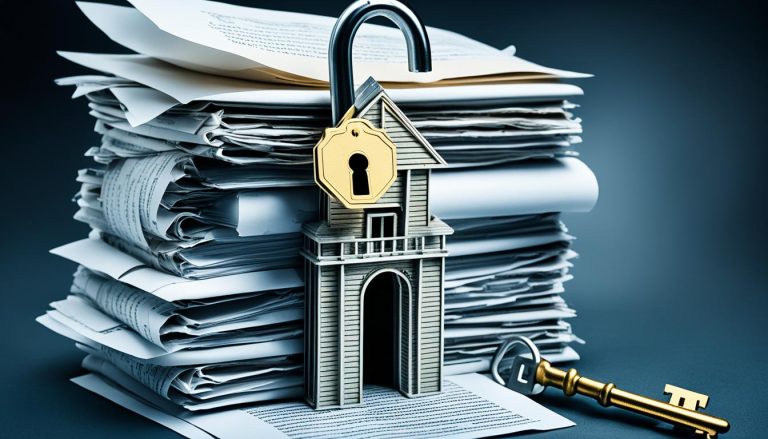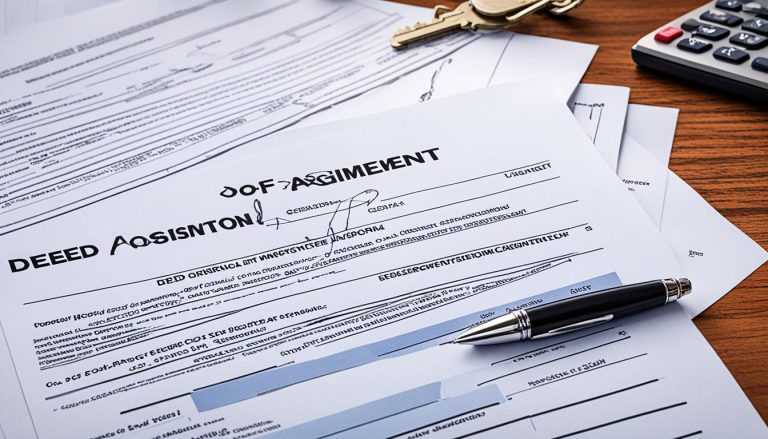Have you ever received a valuable gift and wondered about the legalities behind it? Or perhaps you’re considering gifting something significant to a loved one and want to ensure everything is done properly. In this blog post, we’ll explore the concept of Deed of Gift – what it is, how it works, and why it’s important for both givers and recipients. So grab your favorite beverage, settle in, and let’s dive into the world of gift-giving with a legal twist!
What is Deed of Gift?
A deed of gift is a legal document that facilitates the transfer of ownership of a property or asset from one party, known as the donor, to another party, known as the recipient. It is a commonly used tool in estate planning to secure the transfer of assets and ensure the fulfillment of the donor’s wishes. A deed of gift is an official and binding agreement that outlines the terms and conditions of the property transfer, including any restrictions or provisions. It serves as evidence of the donor’s intention to gift the property to the recipient and can provide tax benefits as part of the gifting process.
Whether you are considering gifting a property or receiving one, understanding the process and legal implications of a deed of gift is crucial. In the following sections, we will delve into the gifting process in estate planning, key considerations for property transfers through a deed of gift, the cost and documentation involved, advantages and limitations, and how to ensure the legitimacy of a deed of gift. By the end of this article, you will have valuable insights to make informed decisions and secure your legacy.
Understanding the Gifting Process in Estate Planning
In estate planning, the transfer of ownership through a deed of gift is a pivotal component. This legal document allows individuals, known as donors, to specify recipients and outline conditions for property transfer. The process entails the preparation and execution of the deed of gift, ensuring compliance with legal requirements and formalities.
For certain transfers, such as real estate, the deed of gift may need to be registered with relevant authorities, such as the land registry. This registration process solidifies the legitimacy of the transfer and serves as official documentation of the change in ownership.
Estate planning professionals are well-versed in the intricacies of the gifting process. They guide individuals through the necessary steps and ensure that all legal provisions are met. By working with these professionals, individuals can ensure a seamless and legally sound transfer of assets.
Key Aspects of the Gifting Process
When engaging in estate planning and the gifting process, it’s important to consider several key aspects:
- Estate Planning: Estate planning involves creating a comprehensive strategy to manage and distribute assets. The deed of gift is one of the mechanisms used in estate planning to ensure effective asset transfer.
- Transfer of Ownership: The deed of gift enables the transfer of ownership from the donor to the recipient. It establishes the recipient’s legal right to the property.
- Legal Requirements: To ensure the validity of the deed of gift, it must comply with legal requirements and formalities. This includes proper documentation, witnessing, and signing.
- Gift Deed Registration: In some cases, gift deeds, particularly for real estate, must be registered with the relevant authority, such as the land registry. Registration provides an official record of the transfer and protects the interests of both the donor and recipient.

Professional Guidance for the Gifting Process
Given the complexity and legal implications of the gifting process, seeking professional guidance is highly recommended. Estate planning professionals, such as solicitors or legal advisors, can provide invaluable expertise in drafting and executing the deed of gift.
These professionals are well-versed in property law, transfer of ownership, and the legal nuances of the gifting process. They can help navigate potential challenges and ensure that all legal requirements are met in order to secure a valid and enforceable transfer.
Through their assistance, individuals can have peace of mind knowing that their assets will be transferred in accordance with their wishes and that the entire process is legally sound and compliant.
Key Considerations for Deed of Gift in Property Transfers
When utilizing a deed of gift for property transfers, it is vital to take into account various legal aspects. Property law and conveyancing play a significant role in ensuring a smooth and secure transfer of ownership.
The deed of gift must accurately describe the property being transferred, including specific details such as boundaries or easements. These details ensure that the recipient has a clear understanding of the property’s characteristics and limitations.
Additionally, the deed of gift should include clauses that address any existing mortgages or liens on the property. This ensures that the recipient is aware of any financial obligations or claims against the property.
Depending on the jurisdiction, it may be necessary to register the deed of gift with the land registry. Registering the deed of gift provides legal protection and ensures the proper transfer of ownership, bolstering the recipient’s rights and minimizing the risk of disputes.
In the process of navigating property law complexities, seeking professional advice from a solicitor or conveyancer is highly recommended. These professionals possess the necessary expertise to guide individuals through the intricacies of property law and ensure that the deed of gift is valid, enforceable, and in compliance with all relevant regulations.
Key Considerations for a Deed of Gift in Property Transfers:
- Accurately describe the property being transferred, including boundaries and easements.
- Include clauses regarding existing mortgages or liens on the property.
- Register the deed of gift with the land registry to ensure a legal transfer of ownership.
- Seek professional advice from a solicitor or conveyancer to navigate property law complexities.
The Cost and Documentation of a Deed of Gift
When considering a deed of gift, it’s essential to understand the associated costs and documentation requirements. The cost of a deed of gift can vary depending on different factors, including the complexity of the transfer and professional fees. To gain clarity on the specific costs involved, it’s advisable to consult with a solicitor or legal professional who specializes in property transfers and estate planning.
In the UK, there are various templates available for creating a deed of gift. These templates can serve as a starting point for drafting the document and provide guidance on structuring the necessary information. However, it’s crucial to customize the deed of gift to suit your specific circumstances, ensuring that all legal requirements are met.
In some cases, a deed of gift may have implications for tax purposes. To fully understand any potential tax implications related to the deed of gift, it’s important to seek guidance from HM Revenue and Customs (HMRC). They can provide valuable insights and ensure compliance with tax regulations.
The Cost of a Deed of Gift
The cost of creating a deed of gift depends on several factors. These include:
- The complexity of the transfer: If the transfer involves multiple properties or assets, complex ownership structures, or special conditions, the cost may be higher.
- Professional fees: Solicitors or legal professionals will charge fees for their services, including drafting, reviewing, and executing the deed of gift.
It’s important to consider these factors when budgeting for a deed of gift. Consulting with a legal professional will provide you with an accurate estimate of the overall cost.
Documentation for a Deed of Gift
When preparing a deed of gift, several essential documents and information are required:
- Identification documents: The donor and recipient will need to provide their identification documents, such as passports or driving licenses, to verify their identities.
- Property details: A thorough description of the property being gifted, including its address, boundaries, and any relevant documentation, such as title deeds or land registry information.
- Terms and conditions: The deed of gift must outline the terms and conditions of the transfer, including any restrictions, provisions, or special requirements specified by the donor.
- Witnesses: Two witnesses must be present during the signing of the deed of gift to attest to its validity. The witnesses must be independent and not have a personal interest in the transaction.
Ensuring you have all the necessary documentation will contribute to a smooth and legally binding transfer.
It’s essential to approach the cost and documentation of a deed of gift with adequate preparation and professional guidance. This will help you navigate the process effectively, ensure compliance with legal requirements, and protect the integrity of the transfer.

Advantages and Limitations of a Deed of Gift
A deed of gift offers several advantages when it comes to estate planning and property transfers. By utilizing a deed of gift, individuals can effectively plan and secure the transfer of their assets, ensuring that their loved ones are provided for. Furthermore, a deed of gift can potentially reduce or optimize tax liabilities, offering financial benefits for both the donor and the recipient.
One of the significant advantages of a deed of gift is that it allows the donor to retain control over the distribution of their assets. They can specify who receives what and under what conditions, ensuring that their wishes are honored. With a deed of gift, individuals can have peace of mind knowing that their hard-earned wealth will be distributed according to their desires.
However, it is crucial to be aware of the limitations of a deed of gift. Once a property is gifted, the donor relinquishes any legal rights or control over it. It is essential to carefully consider the long-term implications of transferring ownership as it is an irrevocable decision. Additionally, mistakes or omissions in the creation of a deed of gift can lead to legal complications, making it imperative to approach the process with caution.
To ensure a smooth and legally binding transfer, seeking professional advice is highly recommended. Legal experts can provide guidance and assistance in navigating the complexities of estate planning and property law. Utilizing customized deed of gift templates can also contribute to a smooth transfer process, ensuring that all necessary information is included and legal requirements are met.
Overall, a deed of gift is a powerful tool in estate planning that provides advantages such as asset transfer planning, provision for loved ones, and potential tax optimization. However, it is essential to understand its limitations and approach the process with care. By seeking professional advice and utilizing suitable templates, individuals can ensure a secure and legally binding transfer of assets.

Ensuring the Legitimacy of a Deed of Gift
When creating a deed of gift, it is crucial to ensure its legitimacy and enforceability. This involves using proper legal terminology and following the required legal procedures to minimize any potential legal complications.
The deed of gift should accurately reflect the intentions of the donor and clearly outline the terms and conditions of the transfer. It is essential to incorporate language that upholds the validity and enforceability of the document.
Proper execution of the deed of gift is vital to its legality. It should be witnessed and signed in compliance with legal requirements. This ensures that the document holds weight and is recognized by the appropriate authorities.
Collaborating with a reputable solicitor or legal professional is highly recommended. Their expertise and knowledge in legal matters can help ensure that the deed of gift adheres to relevant legal provisions and is legally sound.
Keeping proper records and documentation is essential for validating the deed of gift. This includes maintaining any correspondence or supporting documents related to the transfer. These records serve as evidence of the legality and validity of the gift.
By following these guidelines and seeking professional assistance, individuals can ensure that their deed of gift is legitimate and enforceable. This provides peace of mind and ensures that the transfer of assets aligns with their intentions and legal requirements.
| Key Steps to Ensure Legitimacy |
|---|
| Use proper legal terminology |
| Follow required legal procedures |
| Accurately reflect donor’s intentions |
| Clearly state terms and conditions |
| Proper execution with witnessing |
| Seek assistance from a reputable solicitor |
| Maintain records and documentation |
Conclusion
In conclusion, a deed of gift is a valuable tool in estate planning that allows individuals to effectively transfer their assets and fulfill their wishes. It provides a legal framework for property transfers and can offer tax benefits as part of the gifting process. However, creating a deed of gift requires careful consideration of legal requirements, property law, and the specific circumstances of the transfer.
It is highly recommended to seek professional advice from solicitors or legal professionals who specialize in estate planning. They can guide individuals through the process, ensure compliance with legal provisions, and help customize a deed of gift to suit specific needs. Utilizing appropriate templates can also be helpful in creating a valid and enforceable deed of gift.
By understanding the intricacies of the process and the implications involved, individuals can safeguard their legacy and ensure a smooth transfer of their assets to their chosen recipients. A properly executed deed of gift can provide peace of mind and ensure that one’s wishes are fulfilled beyond their lifetime.






